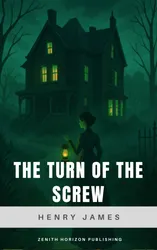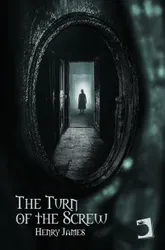The Harvard Fiction Classics in 20 Volumes represents a monumental collection encapsulating the profound shifts and stylistic developments in Western literature from the 18th to the early 20th century. Featuring a diverse array of seminal works by English, American, French, German, Russian, Spanish, and Scandinavian authors, this anthology showcases not only the evolutionary trajectory of narrative form but also the thematic richness exploring human condition, societal norms, and psychological complexity. The collection includes masterpieces that trace the lineage from romanticism to realism and the emergence of modernist sensibilities, offering readers a panoramic view of literary genius through varied narrative voices and techniques. The authors represented in this collection—such as Tolstoy, Austen, Dickens, and Maupassant—are titans of literary history, each bringing their unique cultural and philosophical insights. This cross-cultural assemblage highlights significant movements like the Enlightenment, Romanticism, the Victorian era, and the Russian Golden Age, converging in a tapestry that depicts the diverse human experiences and societal evolutions. Their collective works not only reflect personal narratives but also respond to the larger shifts in social and moral landscapes across Europe and America through their era-defining stories. 'The Harvard Fiction Classics in 20 Volumes' provides an unprecedented opportunity to engage with the thoughts and words of some of the greatest writers in history. This collection is indispensable for students and lovers of literature seeking to comprehend the breadth of narrative innovation and the depth of philosophical inquiry that characterizes the included periods. Each volume invites readers to a unique exploration of life's myriad facets, encouraging a deeper understanding and appreciation of the art of storytelling across different cultures and epochs.
The Harvard Fiction Classics in 20 Volumes (Complete Collection)
Authors:
- Henry James
- George Eliot
- Henry Fielding
- Laurence Sterne
- Jane Austen
- Walter Scott
- William Makepeace Thackeray
- Charles Dickens
- Nathaniel Hawthorne
- Washington Irving
- Edgar Allan Poe
- Francis Bret Harte
- Mark Twain
- Edward Everett Hale
- Victor Hugo
- Honoré Balzac
- George Sand
- Alfred de Musset
- Alphonse Daudet
- Guy de Maupassant
- Johann Wolfgang Goethe
- Gottfried Keller
- Theodor Storm
- Theodor Fontane
- Leo Tolstoy
- Fyodor Dostoevsky
- Ivan Turgenev
- Juan Valera
- Bjørnstjerne Bjørnson
- Alexander L. Kielland
Format:
Duration:
- 7186 pages
Language:
English
Categories:

L'Américain à Paris (tome 1)
Henry James
audiobook
Classic Horror Collection : Volume 1
Washington Irving, William Wymark Jacobs, Henry James, Edgar Allan Poe, H. G. Wells
book
The Turn of the Screw : Henry James' Chilling Gothic Ghost Story
Henry James, Zenith Horizon Publishing
book
The Turn of the Screw - Audiobook
Henry James, Classic Audiobooks
audiobook
The Portrait of a Lady - Audiobook
Henry James, Classic Audiobooks
audiobook
The Turn of the Screw : Henry James' Chilling Psychological Ghost Story of Suspense and Uncertainty
Henry James, Zenith Golden Quill
book
The Turn of the Screw
Henry James
book
The Turn of the Screw : A Chilling Gothic Classic of Madness and Mystery
Henry James, Zenith Evergreen Literary Co
book
Otra vuelta de tuerca
Henry James
book
Tales of the Dark Romantics & Beyond : A collection of mysterious and chilling works by
Edgar Allan Poe, Nathaniel Hawthorne, Herman Melville, Ambrose Bierce, Washington Irving, Henry James, Mary Shelley, Bram Stoker, William Cullen Bryant, Louisa May Alcott, Emily Bronte, Lord Alfred, James Whitcomb Riley
audiobook
The Lesson of the Master
Henry James
book
The Middle Years
Henry James
book
- 930 books
Henry James
Henry James (1843–1916) was an American writer, highly regarded as one of the key proponents of literary realism, as well as for his contributions to literary criticism. His writing centres on the clash and overlap between Europe and America, and is regarded as his most notable work.
Read more - 374 books
George Eliot
George Eliot, born as Mary Ann Evans in 1819, grew up in England, quickly learning about the Victorian culture around her despite the country¿s increasing growth of industrialism. Eliot did exceptionally well at the boarding schools she attended as a child. Her road to success was being paved. At the age of seventeen her mother died, leaving her to manage the household with the help of her sister. Yet Eliot would become much more than a homemaker. Soon she began writing for the Westminster Review, eventually rising to the rank of assistant editor. It was here where she met the already married George Henry Lewes, with whom she lived until his death. It was this relationship which helped her rise in the ranks of the literary community, eventually becoming a famous author. Eliot’s move to London in 1849 marked a new beginning for her promising career, quickly improving her circle of literary friends. Soon she was disowned by her family when they realized she was living in sin with Lewes, whom she regarded as her true, if not legal, husband. Eliot would also leave her church, deciding that she didn’t believe in the faith any longer. Despite her rejection by her family and others for these matters, Eliot would soon gain acceptance as one of the foremost (and highest paid) novelists of her time. Silas Marner was published in 1861 under the penname of George Eliot, when she was forty-two years of age.
Read more - 1189 books
Jane Austen
Jane Austen (1775-1817) was an English novelist known primarily for her six major novels—Sense and Sensibility, Pride and Prejudice, Mansfield Park, Emma, Northanger Abbey, and Persuasion—which observe and critique the British gentry of the late eighteenth century. Her mastery of wit, irony, and social commentary made her a beloved and acclaimed author in her lifetime, a distinction she still enjoys today around the world.
Read more - 585 books
Walter Scott
Sir Walter Scott was born in Scotland in 1771 and achieved international fame with his work. In 1813 he was offered the position of Poet Laureate, but turned it down. Scott mainly wrote poetry before trying his hand at novels. His first novel, Waverley, was published anonymously, as were many novels that he wrote later, despite the fact that his identity became widely known.
Read more - 2134 books
Charles Dickens
Charles Dickens was born in 1812 and grew up in poverty. This experience influenced ‘Oliver Twist’, the second of his fourteen major novels, which first appeared in 1837. When he died in 1870, he was buried in Poets’ Corner in Westminster Abbey as an indication of his huge popularity as a novelist, which endures to this day.
Read more - 760 books
Nathaniel Hawthorne
Nathaniel Hawthorne (1804–1864) was an American novelist, short-story writer, and biographer. His work centres on his New England home and often features moral allegories with Puritan inspiration, with themes revolving around inherent good and evil. His fiction works are considered part of the Romantic movement and, more specifically, Dark romanticism.
Read more - 477 books
Washington Irving
Washington Irving was an American author, essayist, biographer, historian, and diplomat of the early 19th century.
Read more - 1795 books
Edgar Allan Poe
Edgar Allan Poe (1809-1849) was an American writer, poet, and critic. Best known for his macabre prose work, including the short story “The Tell-Tale Heart,” his writing has influenced literature in the United States and around the world.
Read more - 1346 books
Mark Twain
Mark Twain, born Samuel Langhorne Clemens in 1835, left school at age 12. His career encompassed such varied occupations as printer, Mississippi riverboat pilot, journalist, travel writer, and publisher, which furnished him with a wide knowledge of humanity and the perfect grasp of local customs and speech manifested in his writing. It wasn't until The Adventures of Huckleberry Finn (1885), that he was recognized by the literary establishment as one of the greatest writers America would ever produce. Toward the end of his life, plagued by personal tragedy and financial failure, Twain grew more and more cynical and pessimistic. Though his fame continued to widen--Yale and Oxford awarded him honorary degrees--he spent his last years in gloom and desperation, but he lives on in American letters as "the Lincoln of our literature."
Read more - 713 books
Victor Hugo
Victor Hugo, a major leader of the French Romantic Movement, was one of the most influential figures in nineteenth-century literature. By the age of thirty, he had established himself as a master in every domain of literature--drama, fiction, and lyric poetry. Hugo's private life was as unconventional and exuberant as his literary creations. At twenty, he married after a long, idealistic courtship; but later in life was infamous for his scandalous escapades. In 1851, he was exiled for his passionate opposition to Napoleon III. Hugo's rich, emotional novels, Notre Dame de Paris and Les Miserables, have made him one of the most widely read authors of all time.
Read more - 884 books
Leo Tolstoy
Leo Tolstoy grew up in Russia, raised by a elderly aunt and educated by French tutors while studying at Kazen University before giving up on his education and volunteering for military duty. When writing his greatest works, War and Peace and Anna Karenina, Tolstoy drew upon his diaries for material. At eighty-two, while away from home, he suffered from declining health and died in Astapovo, Riazan in 1910.
Read more - 282 books
Ivan Turgenev
Ivan Turgenev was a Russian writer whose work is exemplary of Russian Realism. A student of Hegel, Turgenev’s political views and writing were heavily influenced by the Age of Enlightenment. Among his most recognized works are the classic Fathers and Sons, A Sportsman’s Sketches, and A Month in the Country. Turgenev is today recognized for his artistic purity, which influenced writers such as Henry James and Joseph Conrad. Turgenev died in 1883, and is credited with returning Leo Tolstoy to writing as the result of his death-bed plea.
Read more
